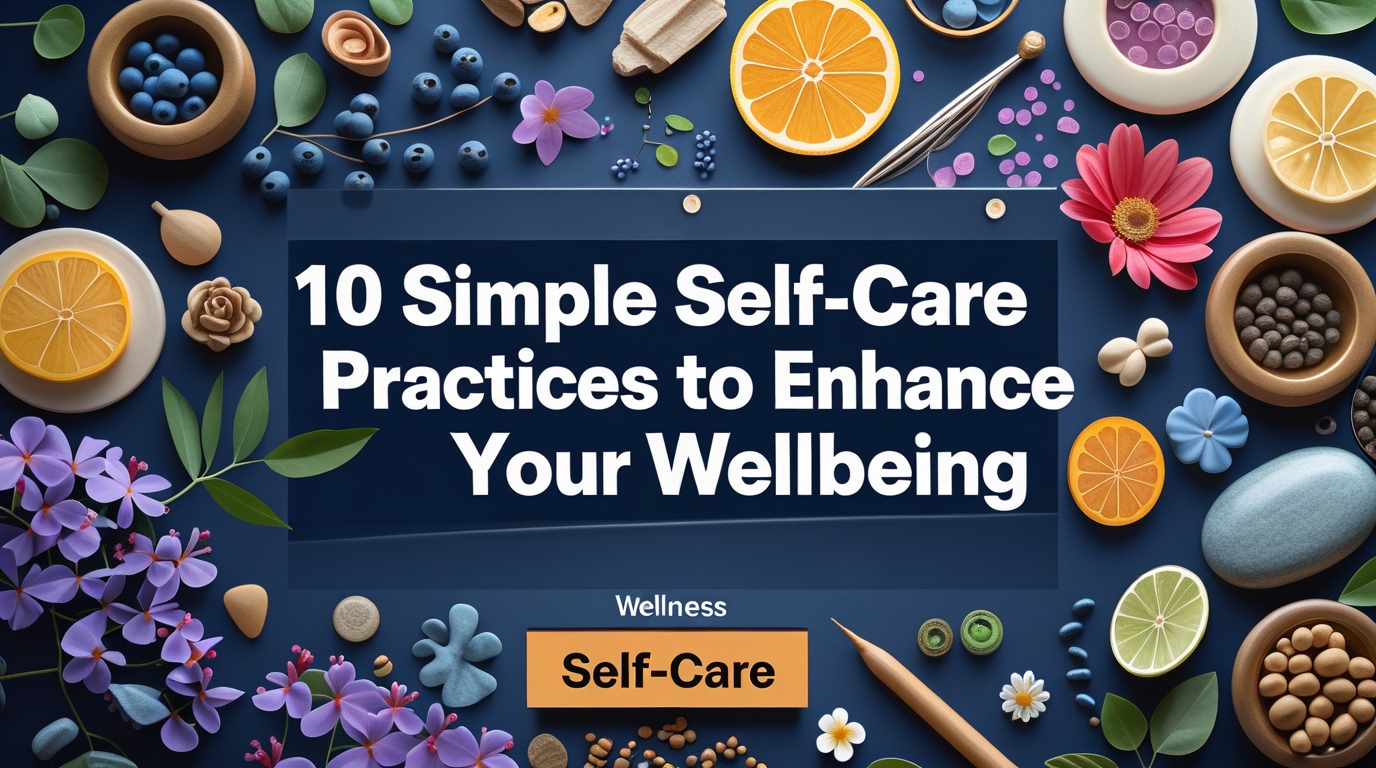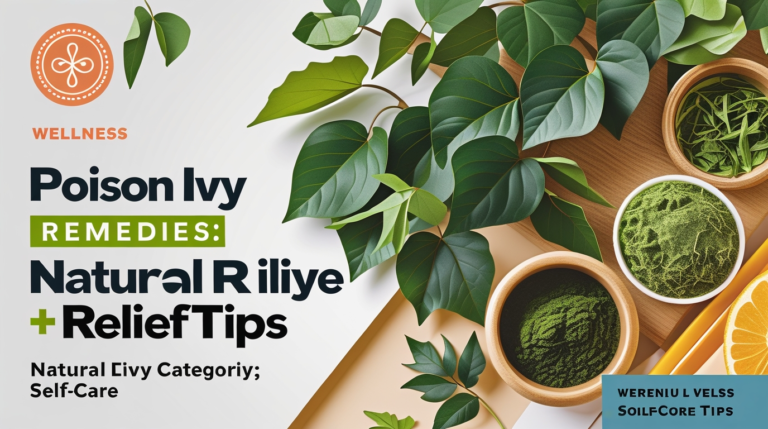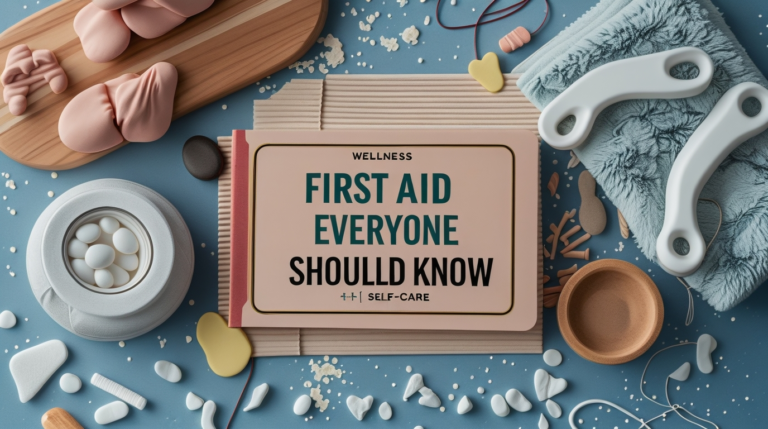Self-care is a term often associated with indulgence and luxury, but in reality, self-care practices are essential components of a balanced lifestyle. In today’s fast-paced world, focusing on self-care can significantly enhance your wellbeing, helping you maintain not only physical health but also mental clarity, emotional resilience, and a sense of peace. This post, titled “10 Simple Self-Care Practices to Enhance Your Wellbeing,” delves into effective and uncomplicated strategies that can be easily incorporated into your daily routine. Whether you’re a busy professional or simply looking to improve your wellness, these self-care practices are designed to nurture your overall wellbeing, providing sustainable health benefits that extend far beyond temporary relief.
Understanding the Importance of Self-Care
The concept of self-care is more than just a buzzword; it is essential for managing stress, avoiding burnout, and maintaining a healthy life balance. Self-care is the conscious act of taking time to attend to your physical, emotional, and mental needs, enabling you to cope better with life’s challenges. It is crucial for enhancing your overall wellbeing, allowing you to be the best version of yourself.
Without regular self-care, stress and fatigue can accumulate, leading to various health issues including anxiety and depression. By integrating structured self-care practices, individuals can experience increased productivity, improved stress management, and greater happiness. Here, we explore the 10 simple self-care practices that can transform your life.
Nurturing Physical Wellbeing
1. Maintain a Balanced Diet
A balanced diet is the cornerstone of personal health. By ensuring your meals are rich in fruits, vegetables, lean proteins, and whole grains, you provide your body with the essential nutrients needed for optimal function. Eating healthy is not just about maintaining physical fitness; it significantly affects mental health too. A nutritious diet supports improved mood, better sleep, and higher energy levels.
- Plan meals ahead to avoid unhealthy choices.
- Stay informed about nutritional benefits of different foods.
- Reduce processed food intake.
2. Engage in Regular Physical Activity
Exercise is a powerful tool for enhancing both physical and mental wellbeing. Regular physical activity releases endorphins, known as the “feel-good” hormones, which help combat stress and improve mood. Whether it’s a brisk walk, yoga, or a high-intensity workout, find a physical activity you enjoy to ensure consistency.
- Set achievable fitness goals.
- Incorporate varied workouts to sustain interest.
- Track your progress to stay motivated.
Read more about the benefits of staying active in our fitness guide.
Boosting Mental and Emotional Health
3. Practice Regular Mindfulness Meditation
Mindfulness meditation is an exceptional self-care practice for those seeking mental clarity and emotional balance. By focusing on the present moment, you can reduce stress, enhance self-awareness, and improve concentration. Allocate a few minutes daily to mindfulness to experience profound changes in how you relate to thoughts and emotions.
- Start with short guided meditations.
- Gradually increase meditation duration.
- Use meditation apps for guidance.
4. Keep a Gratitude Journal
Expressing gratitude effectively rewires the brain towards positivity. By consistently noting down things you’re thankful for, you can shift your focus from what you lack to what you have, increasing happiness and satisfaction. A gratitude journal helps cultivate a positive outlook and can be a powerful tool for improved emotional wellbeing.
- Dedicate time each day to write in your journal.
- Reflect on positive interactions and experiences.
- Review previous entries during challenging times.
Discover more on cultivating gratitude in our advanced mindfulness post.
Creating a Balanced Lifestyle
5. Prioritize Quality Sleep
Quality sleep is a non-negotiable part of effective self-care. It affects nearly every aspect of your health, from cognitive function to emotional stability. By prioritizing sleep, you can improve immune function, enhance mood, and increase productivity. Establish a consistent sleep schedule to regulate your body’s natural clock.
- Avoid screens an hour before bedtime.
- Create a calming bedtime routine.
- Ensure your sleeping environment is comfortable.
6. Set Boundaries and Learn to Say No
One of the key aspects of self-care is the ability to set healthy boundaries. By respecting your own limits and learning to say no, you can prevent burnout and maintain healthier relationships. Boundaries protect your personal space and time, allowing you to focus on personal growth and well-being.
- Identify personal limits in various areas (work, relationships).
- Practice assertiveness in communicating needs.
- Review and adjust boundaries as necessary.
See our guide on setting effective boundaries for enhanced personal health.
Enhancing Social Connections
7. Foster Healthy Relationships
Social interactions are vital to emotional wellbeing. Cultivating meaningful relationships can provide support, increase happiness, and significantly enhance life satisfaction. Invest time and energy in developing and nurturing connections with friends and family to create a supportive network.
- Regularly connect with loved ones.
- Engage in communal activities.
- Join groups or clubs with shared interests.
8. Engage in Acts of Kindness
Helping others promotes a sense of purpose and personal fulfillment. Engaging in acts of kindness, whether small gestures or more significant commitments, can lead to increased feelings of happiness and social connection. This can be as simple as volunteering, helping a neighbor, or making someone’s day with a kind word.
- Look for local volunteering opportunities.
- Practice random acts of kindness daily.
- Reflect on the impact of your actions on others.
Hobby Exploration and Growth
9. Pursue Hobbies and Creative Activities
Engaging in hobbies and creative activities can be a great form of self-care, providing a mental getaway from daily stress. Whether it’s painting, writing, gardening, or playing an instrument, immersing yourself in what you love can be incredibly therapeutic. These activities boost creativity, improve mood, and can even enhance problem-solving skills.
- Dedicate regular time to your hobbies.
- Explore new activities to expand interests.
- Share creative pursuits with others for mutual enrichment.
10. Embrace Personal Growth and Learning
Personal growth is a lifelong journey of self-discovery and improvement. Embracing new learning opportunities can significantly enhance your cognitive and emotional resilience. Whether through formal education, self-study, or experiential learning, continually engaging the mind with new challenges encourages personal development and self-fulfillment.
- Read regularly on varied topics.
- Attend workshops or online courses.
- Set personal development goals and track progress.
Conclusion and Call to Action
Implementing these 10 simple self-care practices can profoundly impact your physical, mental, and emotional health, significantly enhancing your overall wellbeing. Remember, self-care is not a one-time endeavor but a consistent practice that enables sustainable health and happiness. Introduce these practices into your routine and observe the positive changes they bring to your life.
We’d love to hear your thoughts on these self-care practices. Which ones are you eager to try, and how have they impacted you if you’ve already incorporated them? Share your experiences in the comments below! If you found this post helpful, consider sharing it with friends or subscribing for more insights into wellness and personal growth.





Leave a Comment